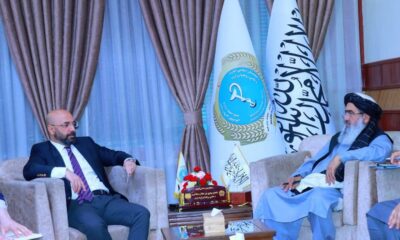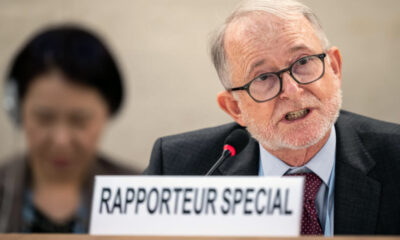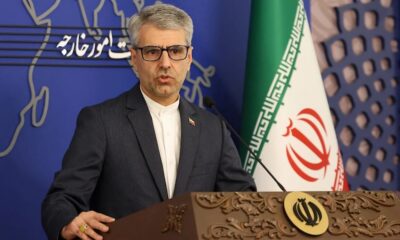Latest News
Pakistan invites Karzai to attend ‘special’ Afghan conference
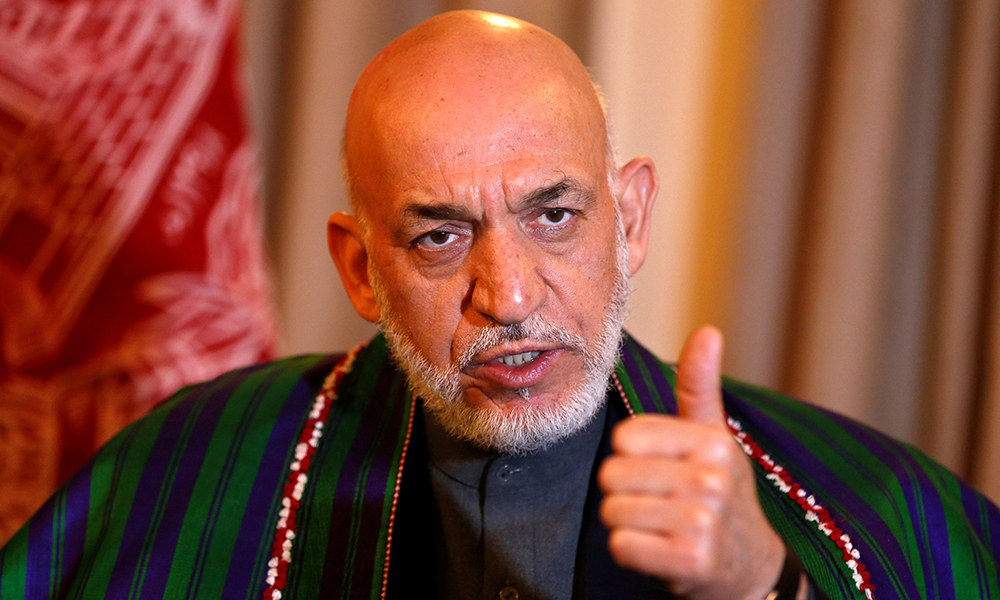
Pakistan’s Federal Minister for Information and Broadcasting Fawad Chaudhry said Pakistan is continuing its efforts to achieve stability and security in Afghanistan.
In a tweet, he said Prime Minister Imran Khan had a telephonic conversation with former Afghan President Hamid Karzai and invited him to attend a “special” conference on Afghanistan situation the country would organise soon.
Geo News reported that the information minister said that key Afghan leaders, including Hamid Karzai, have been invited to attend the proposed conference.
The recent development will give rise to new hopes for a solution to Afghanistan’s problems, he added.
According to a report in The News, the proposed conference will take place from July 17 to 19 and several Afghan leaders have already confirmed their participation.
Afghan special presidential envoy for Pakistan Mohammed Umer Daudzai and former finance minister Omar Zakhilwal have both confirmed to VOA they will attend the meeting. However, Daudzai, said the meeting “dates are still being debated.”
Hamid Karzai, a former Afghan president, Salahuddin Rabbani, a former foreign minister, Omar Zakhilwal, a former finance minister, Haji Mohammad Mohaqiq, a senior leader of ethnic Hazara minority community, Gulbuddin Hekmatyar, a former warlord-turned politician, and Ahmad Wali Masoud, are among the invitees, the sources said.
Latest News
Turkey reaffirms support for Afghanistan’s health sector

Noor Jalal Jalali, the Minister of Public Health of the Islamic Emirate of Afghanistan, has met with the Turkish Chargé d’Affaires to Kabul, Sadin Ay Yildiz, to discuss expanding cooperation in the health sector.
During the meeting, Noor Jalal Jalali thanked Turkey for its continued assistance and outlined key priorities, including the training of Afghan healthcare workers, expansion of medical services for children with congenital heart diseases, construction and equipping of district-level hospitals, and the launch and strengthening of pediatric neurosurgery services in Kabul.
The minister also emphasized the importance of Turkish medicines in Afghanistan’s healthcare system, stressing that quality standards and affordable pricing must be ensured.
For his part, Yildiz reaffirmed Turkey’s commitment to supporting Afghanistan’s health sector and said Ankara would work to provide equipment and facilities in line with the needs of the Ministry of Public Health. He also requested a detailed list of required medical equipment and resources to facilitate further cooperation.
Latest News
Bennett expresses concern over civilian casualties in Pakistani airstrikes on Afghanistan
In a post on X, Bennett said he was “deeply concerned by reports of numerous children and other civilians being killed following renewed conflict between Pakistan and Afghanistan.”
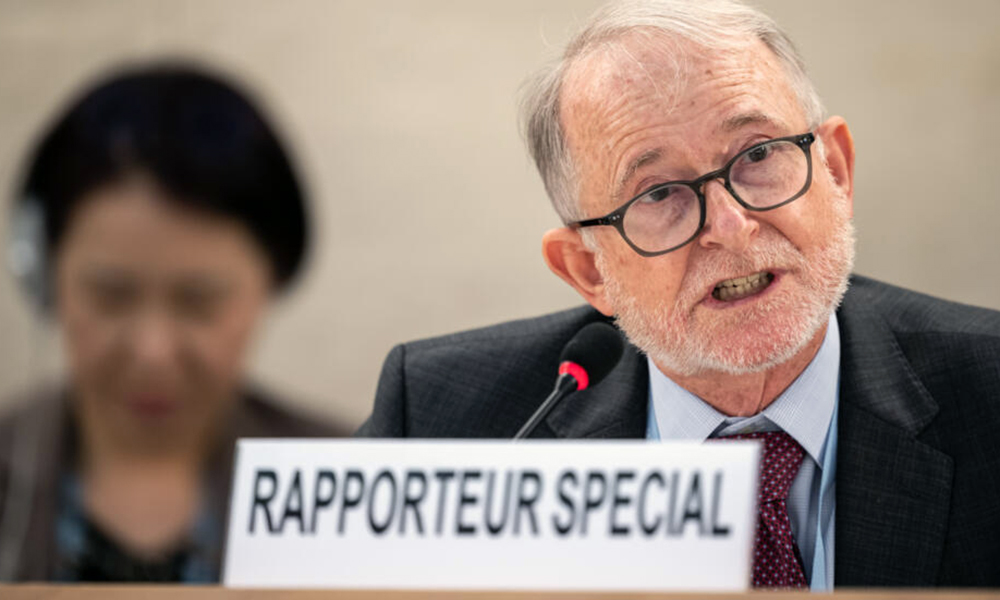
Richard Bennett, the United Nations Special Rapporteur on the situation of human rights in Afghanistan, has expressed grave concern over reports of civilian casualties following recent Pakistani military airstrikes inside Afghanistan.
In a post on X, Bennett said he was “deeply concerned by reports of numerous children and other civilians being killed following renewed conflict between Pakistan and Afghanistan.” He called on both sides to exercise maximum restraint, ensure the protection of civilians, and comply fully with international law.
Pakistani forces carried out airstrikes late Saturday night and early Sunday morning targeting a religious seminary in Paktika province as well as residential areas in the Behsud district of Nangarhar province.
In Behsud, at least 13 members of a single family — including women and children — were reportedly killed, while nine others were injured. Five individuals are still said to be missing.
The comments come after the United Nations Assistance Mission in Afghanistan (UNAMA) confirmed it had received credible reports of civilian harm resulting from Pakistani air operations conducted inside Afghanistan on 21–22 February.
Airstrikes in the Behsud and Khogyani districts of Nangarhar province, carried out between approximately 23:45 on 21 February and 00:15 on 22 February, reportedly left at least 13 civilians dead and seven others injured, including women and children.
Pakistani forces also struck Barmal and Urgun districts in Paktika province. In the Marghai area of Barmal district, an airstrike around 23:15 on 21 February reportedly hit a madrassa and partially damaged a nearby mosque.
UNAMA urged all parties to immediately halt hostilities, prioritize civilian protection, and uphold international humanitarian law — particularly the principles of distinction, proportionality, and precaution — to prevent further civilian casualties.
Latest News
Iran offers to mediate as tensions between Afghanistan and Pakistan escalate
The spokesperson expressed hope that “good-faith dialogue” between Kabul and Islamabad would help defuse the crisis.
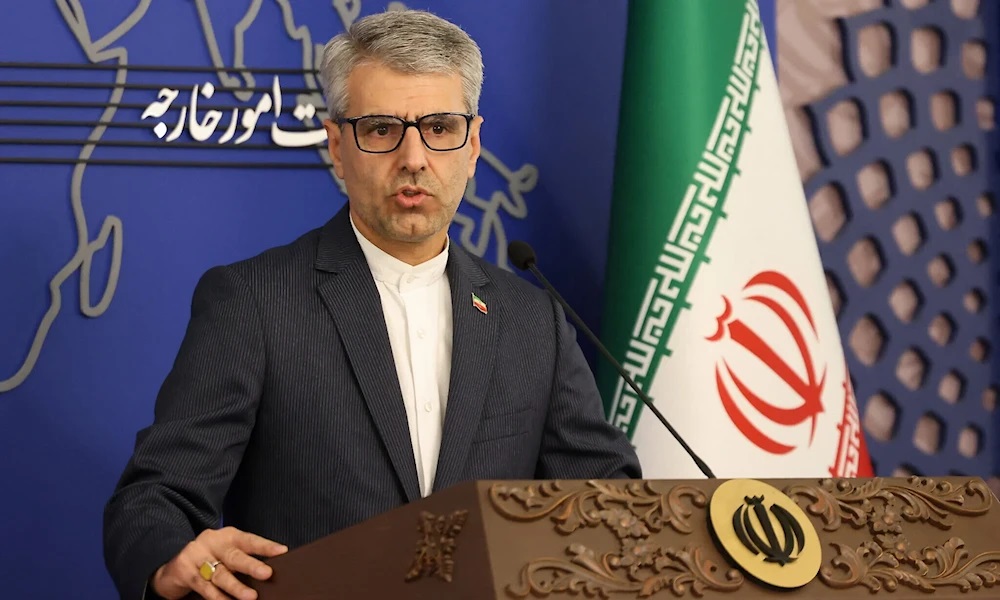
Esmaeil Baghaei, spokesperson for Iran’s Foreign Ministry, said Tehran is deeply concerned about the rising tension between Kabul and Islamabad, warning that any further escalation could have consequences beyond the two neighboring states.
Speaking at a press conference, Baghaei said Iran stands ready to help prevent the situation from deteriorating. “We are concerned about this situation, and we have every right to be concerned, because both countries are our neighbors and Muslim nations. Any escalation between them will have repercussions beyond these two countries,” he said.
He stressed that Iran consistently advocates dialogue, restraint, and diplomatic engagement to resolve disputes. “Our constant advice is dialogue, self-restraint, and efforts to resolve differences through diplomatic means. We have also declared our readiness to use our good offices to help prevent further escalation,” Baghaei added.
The spokesperson expressed hope that “good-faith dialogue” between Kabul and Islamabad would help defuse the crisis.
His remarks come after Pakistan’s military carried out late-night airstrikes around midnight on Saturday, targeting areas in Khogyani, Ghani Khil, and Behsud districts of Nangarhar province, as well as Barmal district in Paktika province.
Local authorities said dozens of civilians, including women and children, were killed in the strikes.
In response, Afghanistan’s Ministry of Defense said it would deliver a “calculated response at an appropriate time.”
-

 Latest News5 days ago
Latest News5 days agoIndian customs seize Chinese walnuts falsely declared as Afghan
-
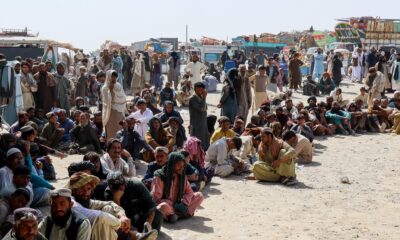
 Latest News5 days ago
Latest News5 days agoPakistan’s Punjab to send home 20 more Afghans in repatriation drive
-
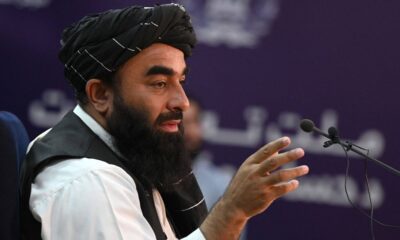
 Latest News3 days ago
Latest News3 days agoMujahid: Afghanistan will target perpetrators, not civilians
-

 Latest News4 days ago
Latest News4 days agoMoldova bans Afghan airlines over safety concerns
-
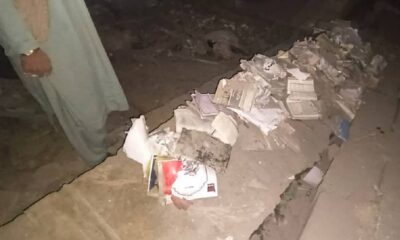
 Latest News3 days ago
Latest News3 days agoAfghanistan vows retaliation after Pakistan launches air strikes
-
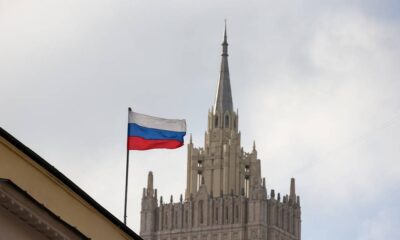
 Latest News2 days ago
Latest News2 days agoRussia estimates up to 23,000 terrorists present in Afghanistan
-

 Sport4 days ago
Sport4 days agoJosé Antonio Nogueira appointed new Afghanistan head football coach
-

 Sport5 days ago
Sport5 days agoProud Trott bids farewell to Afghanistan, looks ahead to next coaching chapter




